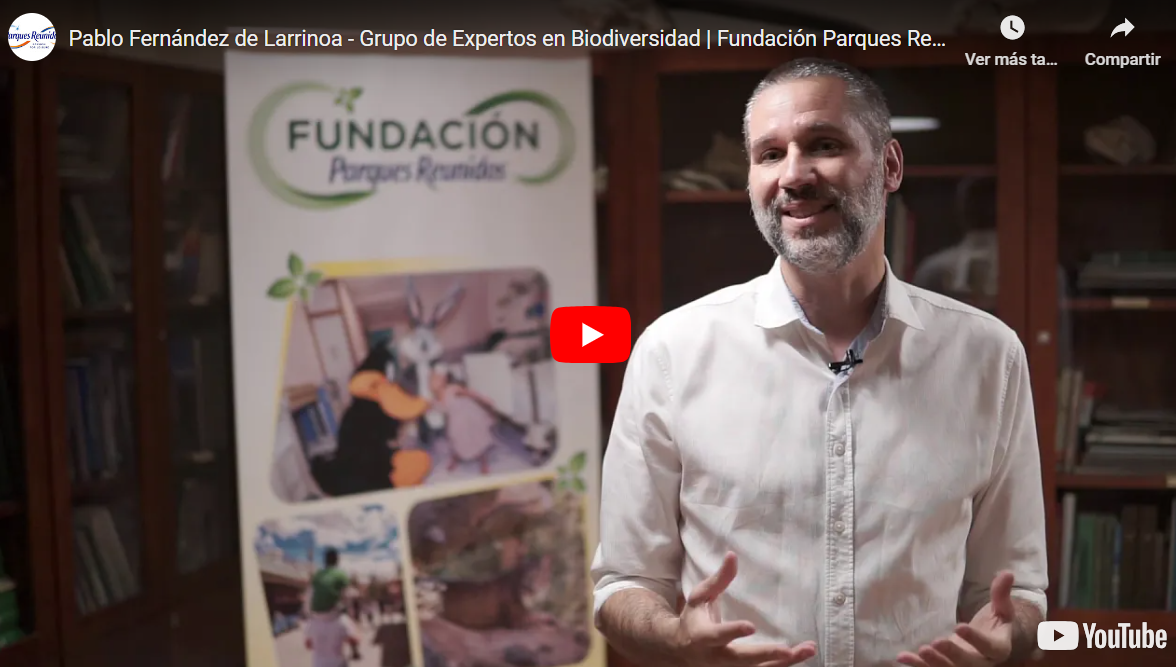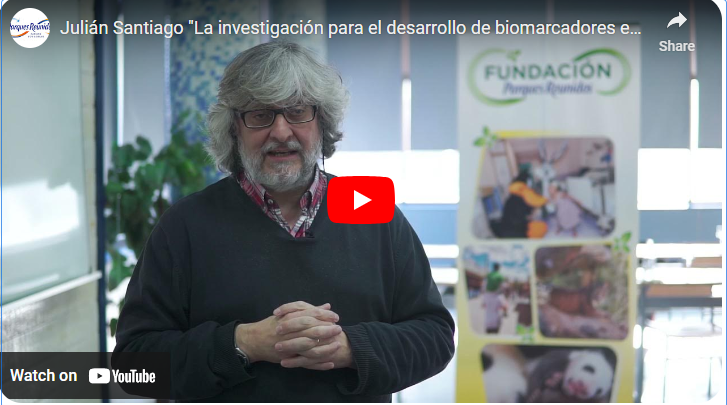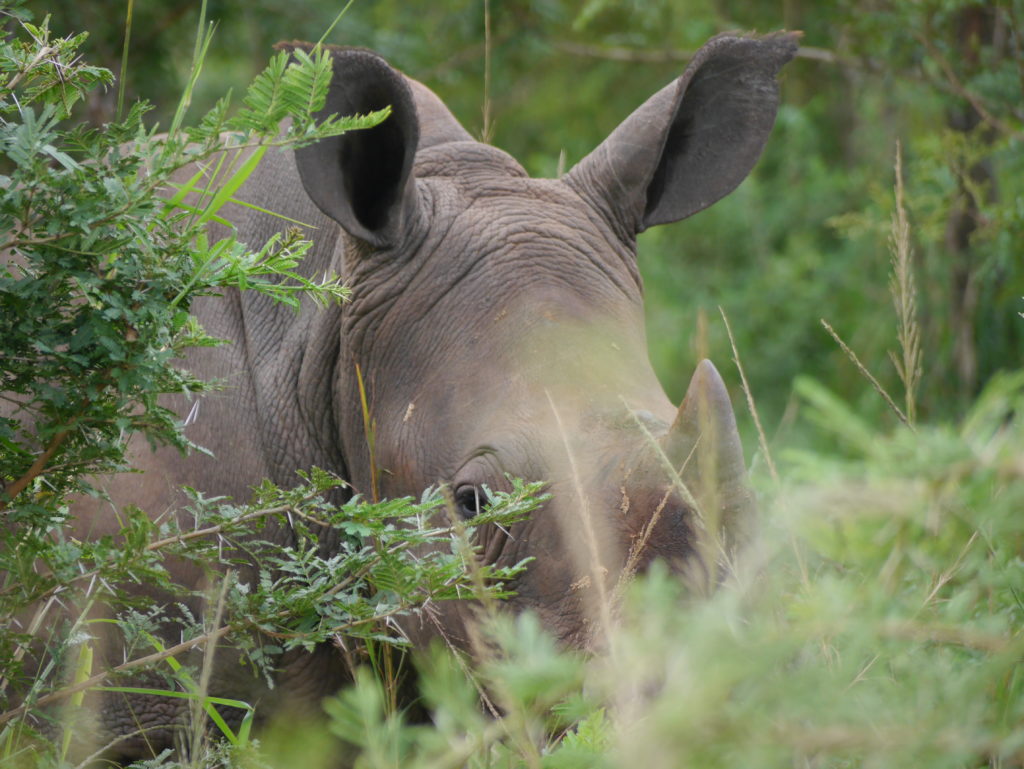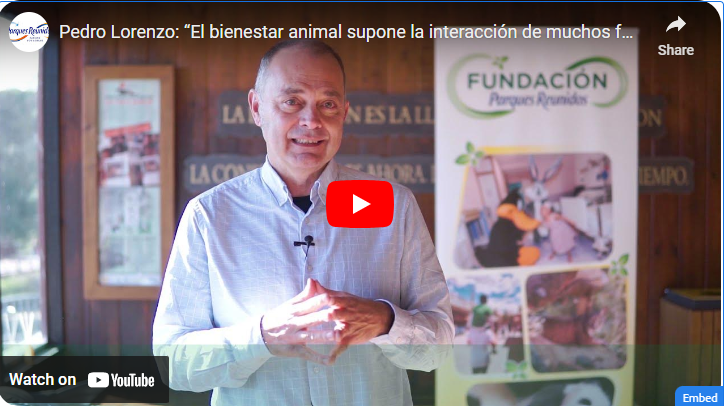
Achieving animal welfare “entails the interaction of many factors. We need to learn about animal behavior and about their responses to know whether the animal’s level of comfort is accetable or not”. Pedro Lorenzo, dean of the Universidad Complutense of Madrid School of Veterinary, emphasizes the importance of developing indicators that will determine the degree and complex factors that influence animal welfare in a scientific and objective way.
For Lorenzo, the priority to put together value and reliable indicators is to determine the essential parameters to consider in each case. “Some are behavioral parameters, while others are directly related to the animal, such as hormonal or bodily function factors. The first step should be to determine which are the necessary parameters at a global level. Then, specific paramenters should be identified for each specific species or taxonomic groups”, the expert explains. Nevertheless, as fundamental as animal behavior and responses are for this task, he also points that animal health matters should not be excluded from the process.
A MULTIDISCIPLINARY AND COLLABORATIVE ENDEAVOR
Universities, then, become a key ally in this endeavor. On the one hand, they promote on the educational end through agreements and collaborations among expets in Ethology, Phisiology, reproduction, etc. On the other hand, they contribute through research and laboratory work by gathering protocols to define animal health parameters. These protocols will be paramount to fairly evaluate how different animal welfare circumstances may affect the development of indicators.
“Beyond the fact those of us who are studying these issues belong to a multidisciplinary team, the participation of zoos is the cornerstone of this project. Zoos are the places where we can find the animals we will work with and where welfare protocols and parameters will be put to work.”
Pedro Lorenzo, Dean of Universidad Complutense de Madrid School of Veterinary
Lorenzo highlighted that zoos are the institutions that will be able to incorporate these techniques by testing, simulating, and analyzing different conditions. In addition, zoos also divulge their work in conjunction with universities, OPIs (Spanish public research organization), other research and educational institutions, public administrations… ” because the main objective is, precisely, to show evidence and achieve the implementation of animal welfare protocols in zoos themselves”.
EXPERT GROUP ON BIODIVERSITY
Pedro Lorenzo is a member of the Parques Reunidos Foundation’s Expert Group on Biodiversity, a multidisciplinary team working to promote collaboration among different institutions involved in conservation of biodiversity. The other members of the group are:
- Enrique Alonso, Permanent Member of Spanish State Council; UNESCO Chair on Spatial Design and the Environment; Honorary Researcher at the Franklin-UAH Institute and the California Monterey International Institute;
- Alberto Díez, InfoZoos spokesperson;
- Jesús Fernández, President of the Parques Reunidos Foundation;
- Pablo Fernández de Larrinoa, Director of Fundación CBD-Hábitat‘s Mediterranean Monk Seal Conservation Program;
- Luis Mariano González, head of Conservation Action at the General Sub-directorate on Biodiversity and Natural Environment of the Spanish Ministry of Ecological Transition;
- Xavier Manteca, Professor, Animal and Food Science Department, School of Veterinary Science of the Universidad Autónoma de Barcelona, and the group’s moderator;
- Odile Rodríguez de la Fuente, General Director and President of the Fundación Félix Rodríguez de la Fuente;
- Julián Santiago, Research Professor at the Instituto Nacional de Investigación y Tecnología Agraria y Alimentaria (INIA);
- Andrea Torres, Biologist at InfoZoos;
- Felipe Vilas, President of the Madrid Official College of Veterinarians.



